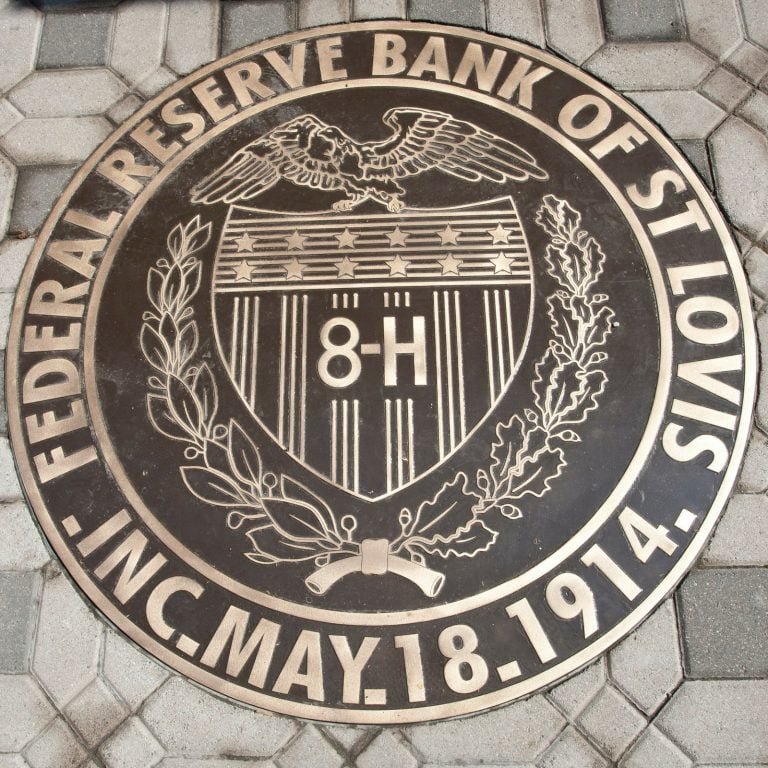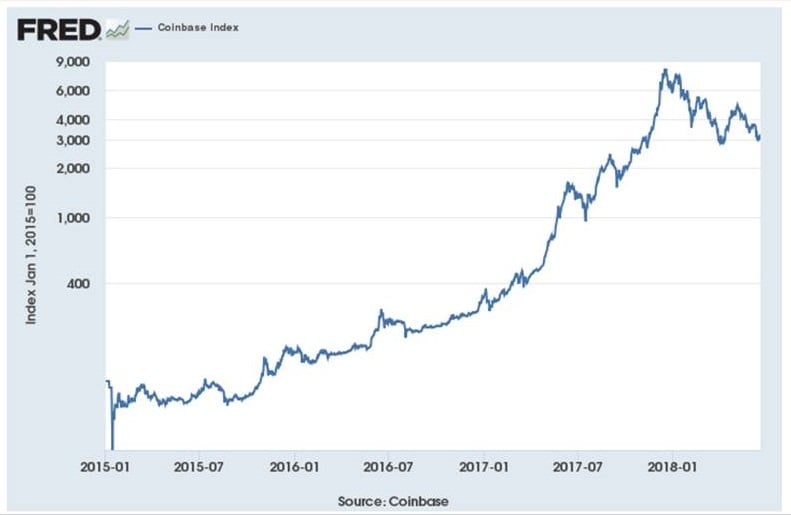
This week the Federal Reserve Bank of St. Louis added cryptocurrency to their Federal Reserve Economic Data (FRED) database. It’s a seemingly small gesture, but one that signals to most observers crypto’s maturation, at least in the eyes of arguably the most important central banking institution in the world.
Also read: Troll Slayer: Derek Magill Defends Peer-to-Peer Electronic Cash Against Defamation
Federal Reserve Bank of St. Louis Adds Four Cryptos to its FRED Database
“FRED has added four series on the prices of different cryptocurrencies,” the St. Louis Federal Reserve posted without much fanfare this week, including “Bitcoin, Bitcoin Cash, Ethereum, and Litecoin. The price data are updated daily and span from as early as 2014 to the present. All data were obtained from Coinbase, a cryptocurrency exchange company, whose overall digital asset performance is depicted in the above graph (Coinbase Index).”
The St. Louis Fed is one of 12 regional banks within the system, collectively constituting the most powerful central bank on the globe. Known to be part of the 8th District, which includes midwestern Fed banks, it is also considered an economic research powerhouse.

It maintains its FRED database at its famed research division. The bank uses more than half of a million data points, derived from 81 sources. Exchange rates, GDP, interest rates, consumer indexes, banking, producer price indexes, among other sectors, comprise its focus. FRED-published statistics carry massive weight in the professional financial world.
That some government agency creates yet another index isn’t particularly newsworthy. However, that both proponents and opponents frequently set cryptocurrencies such as bitcoin cash (BCH) as distinctly operating in defiance of central banks, and how the Fed appeals to crypto bank Coinbase for its metric, means decentralized currencies have come



